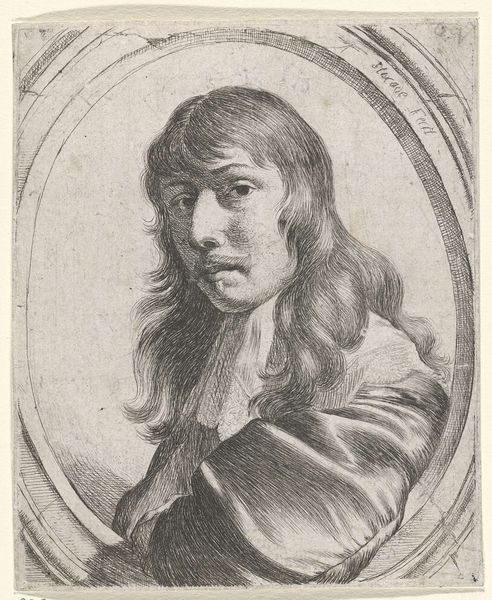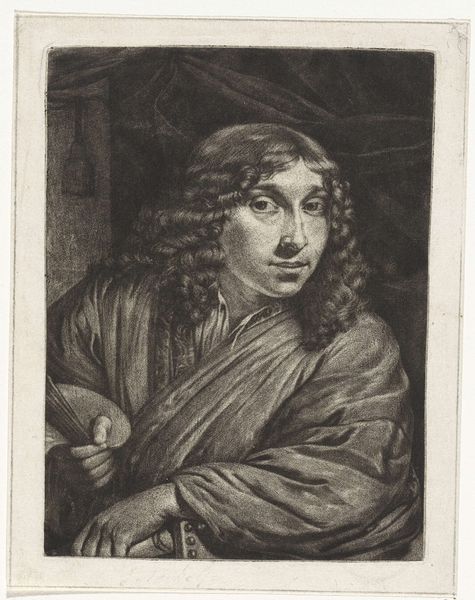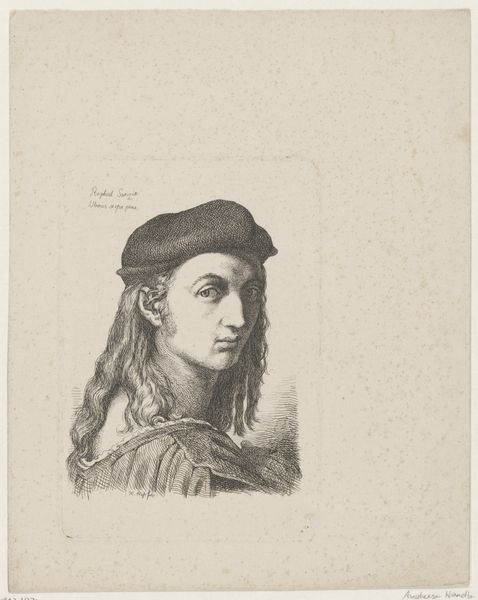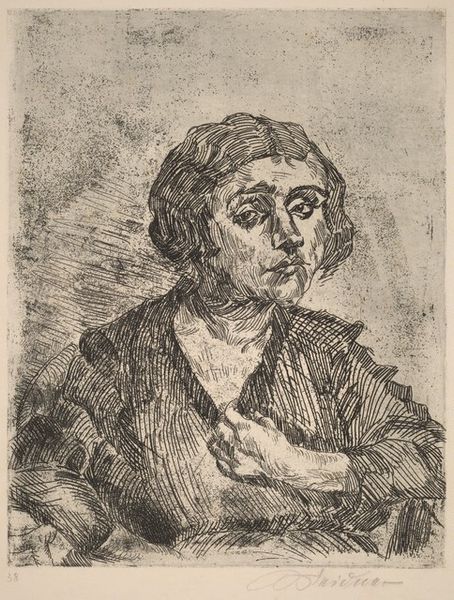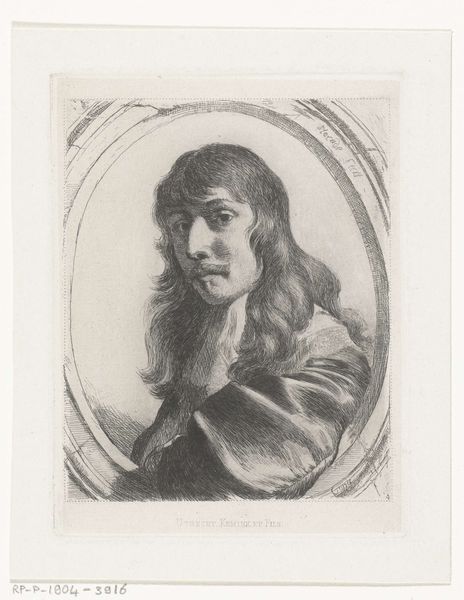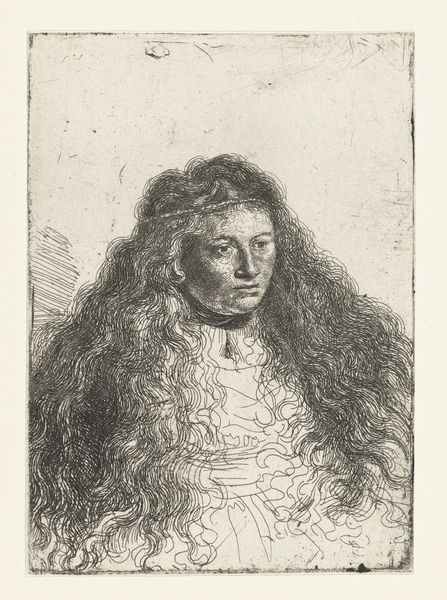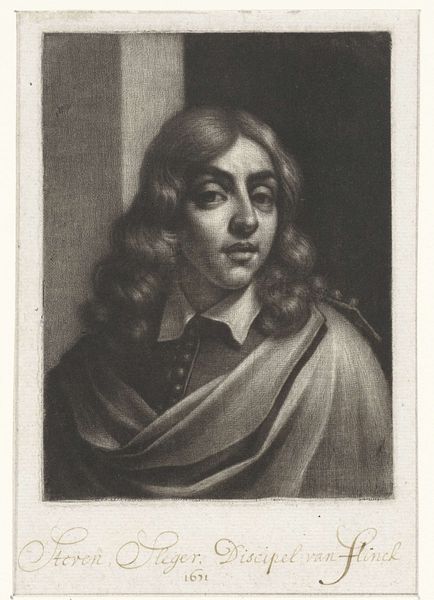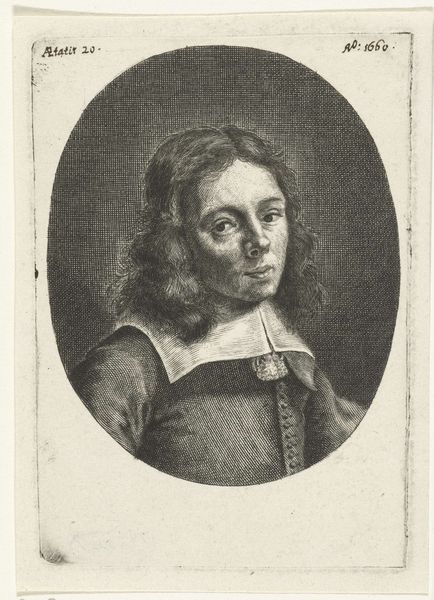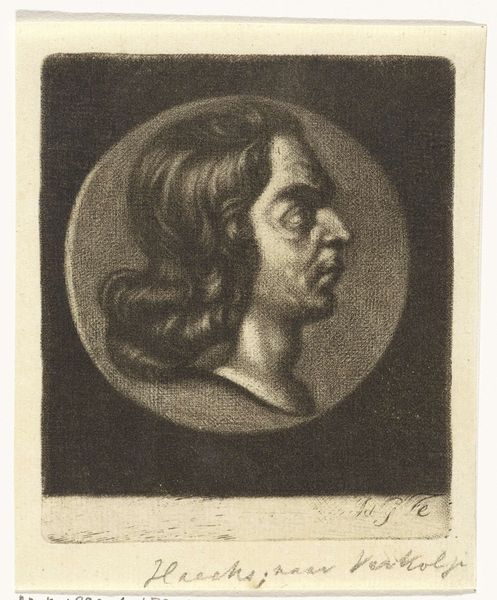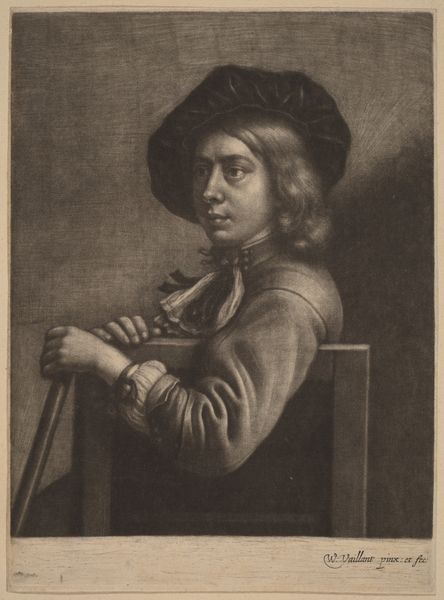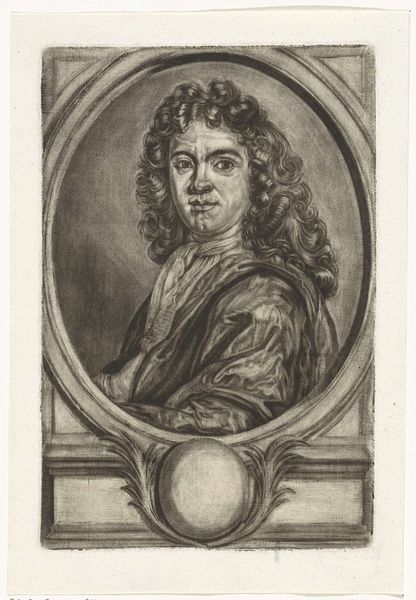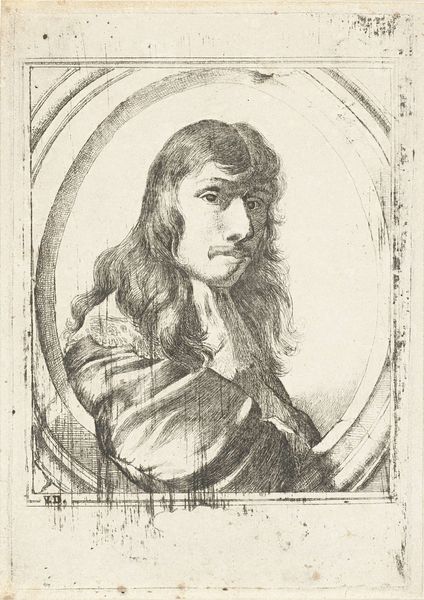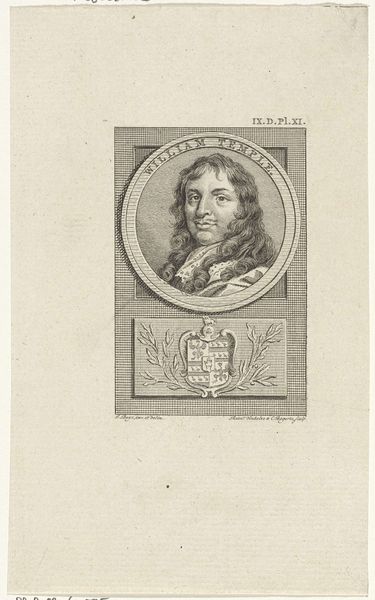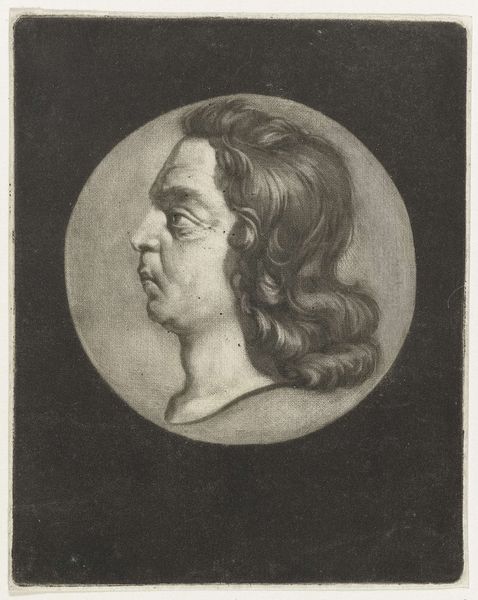
print, engraving
#
portrait
#
pencil drawn
#
baroque
#
dutch-golden-age
# print
#
figuration
#
pencil drawing
#
line
#
engraving
Dimensions: height 98 mm, width 60 mm
Copyright: Rijks Museum: Open Domain
This is Nicolaes Anthoni Flinck’s self-portrait, made sometime in the 17th or early 18th century. It's an etching, a printmaking technique that allows for fine, detailed lines which you can see framing the artist’s face in an oval border. Flinck lived and worked during the Dutch Golden Age, a period of immense cultural and economic growth for the Netherlands. As the son of Govert Flinck, a renowned painter and Rembrandt’s apprentice, Nicolaes carried a weighty artistic lineage. This self-portrait seems to suggest a probing of identity, especially in relation to family legacy and artistic ambition. The slightly turned gaze and the soft, almost melancholic expression invite us to consider the complexities of self-perception and the pressures of living up to a paternal artistic reputation. Self-portraits were often used by artists to assert their status and skill. But here, the relatively small scale of the etching and the introspective mood complicates any straightforward reading of self-aggrandizement. Instead, it offers us a glimpse into the artist’s inner world, a space where identity is negotiated between public expectation and personal reflection.
Comments
No comments
Be the first to comment and join the conversation on the ultimate creative platform.
